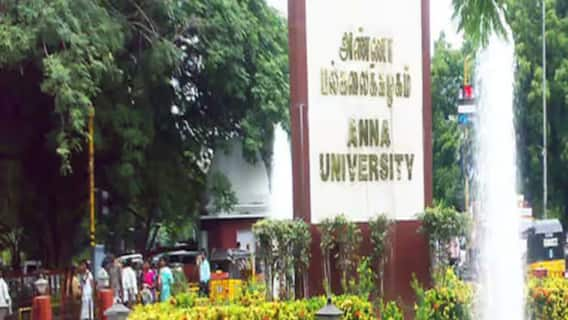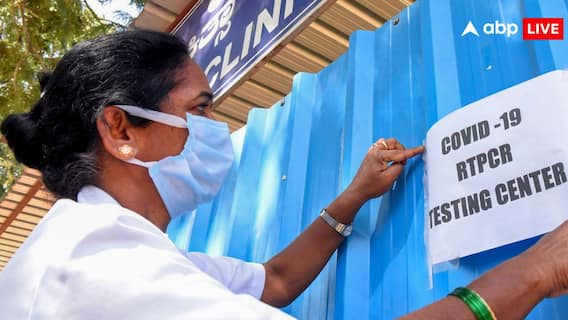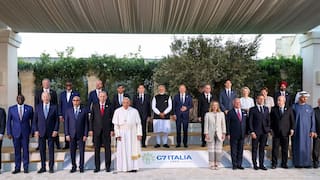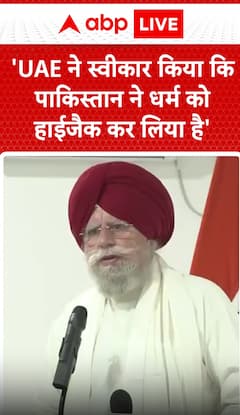India's Moon Triumph A Giant Leap In Geopolitics, Will Benefit Millions More Across World
The Indian space programme today is not only benefitting millions of Indians, but it is proving to be useful to many developing societies in the world.

When India’s Moon mission Chandrayan-3’s lander and rover touched the lunar surface, on August 23, India’s space odyssey found resonance on the diplomatic high table of the BRICS Summit in Johannesburg, South Africa. Strategically speaking,India’s Moonwalk is a big geopolitical step heralding its arrival on the world stage. In fact, India’s successful Moon mission, just on the heels of the failure of Russia’s Luna-25, is bound to ignite a global space race. To be a space power means uplifting a country's standing in the comity of nations on a much higher pedestal. In today’s geopolitical ecology, a country that sits in space controls the Earth. Thus, a nation who aspires to be a global power must have its heads and legs in space. The latest success has, in the fast-changing geopolitical landscape of the world, destined India to be an international space player.
During the BRICS summit, South African President Cyril Ramaphosa in his remarks hailed India’s achievement in space and congratulated India in the presence of Chinese President Xi Jinping and others present at the multilateral event. Prime Minister Narendra Modi said: “This was the achievement not only of India but of entire humanity.”
President Ramaphosa was not the only one, most of the world leaders expressed happiness and sent congratulatory notes to PM Modi, who noted that this day signifies how victory is achieved from the lessons of defeat. He added: "I am confident that all countries in the world, including those from the Global South, are capable of achieving such feats. We can all aspire for the Moon and beyond.”
ALSO READ | Chandrayaan-3 Starts Operations On Moon, Here Is How It Will Help Humanity
Indian Space Programme Benefitting World Already
It is a coincidence that Chandrayan-3 dropped its lander and rover on Moon while PM Modi was on the African soil whose citizens have tasted the immense benefits that the Indian Space Research Organisation (ISRO) is bringing to them. The visionary late Indian President Dr APJ Abdul Kalam launched a pan-Africa e-network project in 2009 coinciding with aunched of 'Focus Africa' programme by the Ministry of External Affairs to directly connect with all members of the African Union, its governments and masses, especially the youth, who got the unique opportunity to learn engineering lessons from esteemed IIT professors via satellite. Not only in the field of education, but even African patients are connected to top Indian doctors who provide expert advice via satellite.
Under the pan-African e-network Project, India has set up a fibre-optic network to provide satellite connectivity, telemedicine, and tele-education to countries of Africa. The project aims to create significant linkages for tele-education and telemedicine, internet, video-conferencing and VoIP services, making available the facilities and expertise of some of best universities and super-speciality hospitals in India to the people of Africa.
Not only Africa, but in the immediate neighbourhood, the South Asians are also benefitting from the Indian space programme as India has launched a special satellite for the benefit of seven countries, though Pakistan refused to be a part of it because of political reasons.
It would be pertinent to point out that Indian space programme today is not only benefitting millions of Indians, but it is proving to be useful to most of the developing societies in the world. In fact, India’s rival space powers would feel jealous of space connectivity that is helping reach directly to the homes of millions of poor people all across Africa and Asia and small island countries in the Indian Ocean, who really cannot afford to have independent space programmes.
The E-Africa project got immense popularity among the African masses. This projected a benign image of India among millions of Africans, who directly benefited from India’s space programme sitting from their home. It is obvious that the Indian space programme’s successful foray to the Moon adds yet another dimension to India’s increasing global heft. India has never bragged about the significance of its space programme, and the kind of services it has delivered for the common people of the world. In fact, the Indian space programme is not profit oriented. The satellite-based services to African and Asian community is an example of the responsibility India has taken to uplift the backward societies. There is no equivalent of such welfare programme for the backward societies, in western countries. Indian space programme managers never sought any commodity or cash in return.
India's Geopolitical Ascent in the Space Arena
In the seventies, when India dreamt of putting its own satellite in space, the developed society mocked at India’s ambition to be a space-faring nation. They questioned how can a bullock cart riding nation walk in space. India’s first satellite, Aryabhatta, weighing 360 kg was first launched from a Soviet cosmodrome in 1975. Then on, the US and its European and Asian partners put all sorts of barriers to restrain India from launcing into the space. During those years, when India was trying to develop own Rohini rockets to be sent to space, the US-led consortium of space powers feared the challenge from India and dubbed these rockets as missile and banned for export all dual-use technology products and materials that can be used in space programmes. In fact, in 1987, the Missile Technology Control Regime (MTCR) was brought in to prevent India’s splash in space, either through missiles or satellite carriers.
No doubt, the Soviet and the French have aided India’s space programmers in a significant manner. Today, Indian space scientists can boast of mostly indigenous capabilities. In fact, once a pariah state in the space community, when Indian space experts were even barred from entering the precincts of world renowned agencies like NASA, are today becoming a darling of those developed nations whose satellites are today being launched by ISRO. Developed countries like the US and many European and Asian powers are vying to enter into space cooperation agreements with India.
In fact, such is the credibility of ISRO that the US Space department has signed a landmark agreement with India under its ARTEMIS programme. The ARTEMIS accord was signed during PM Modi’s visit to Washington last June. The ARTEMIS programme is a mega initiative undertaken by NASA to return humans to the Moon. So, let us wait for the dream day when an Indian will put his feet on the Moon.
The author is a senior journalist and strategic affairs analyst.
[Disclaimer: The opinions, beliefs, and views expressed by the various authors and forum participants on this website are personal.]
Top Headlines





































